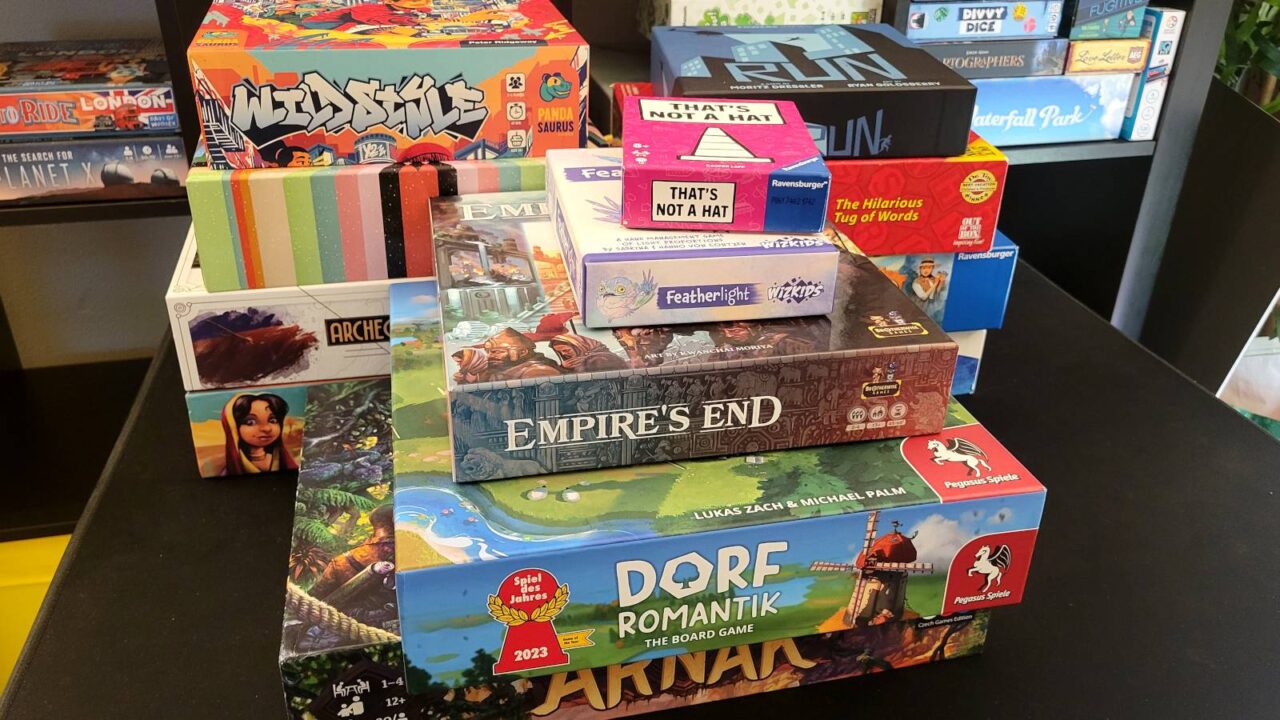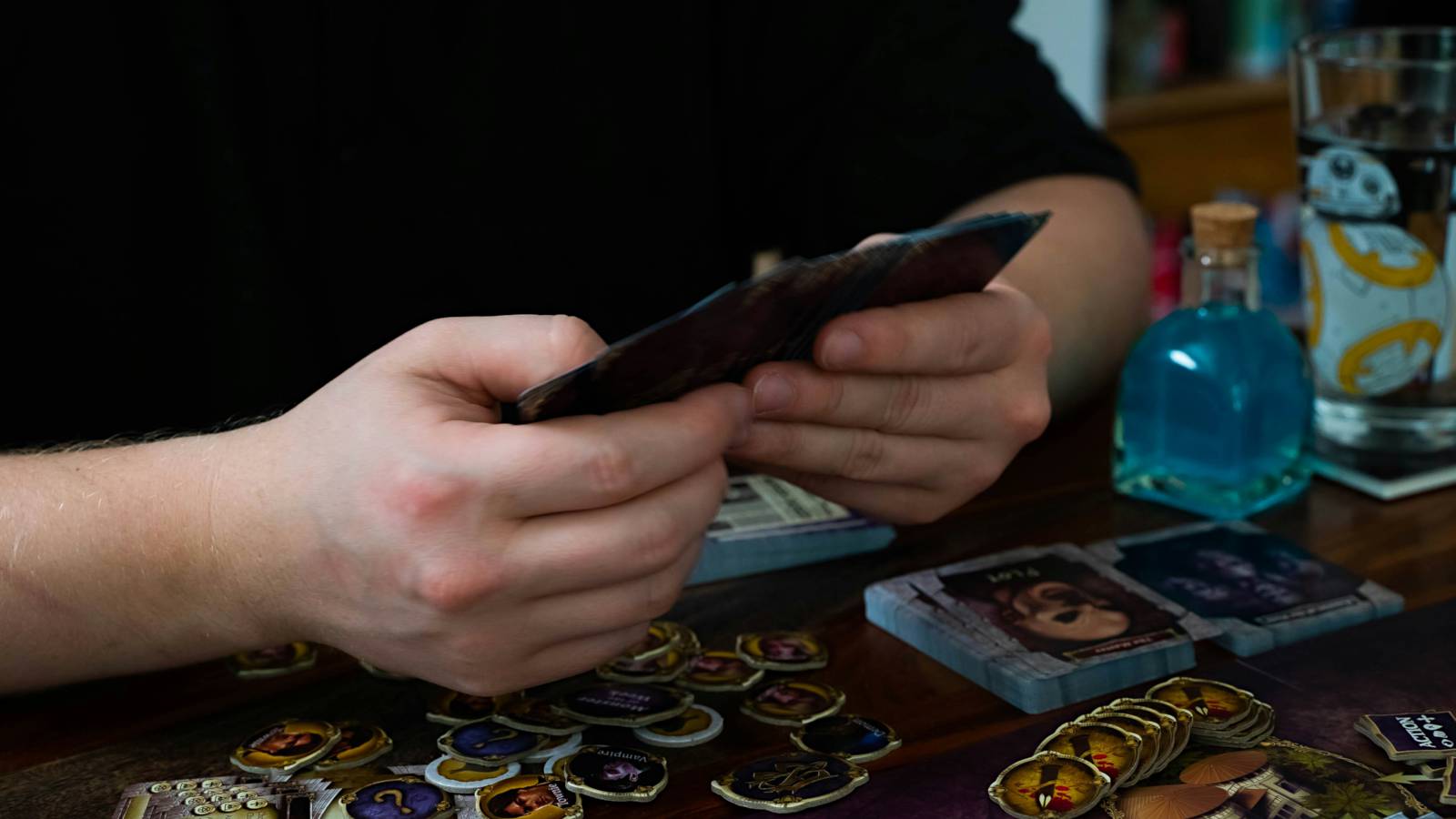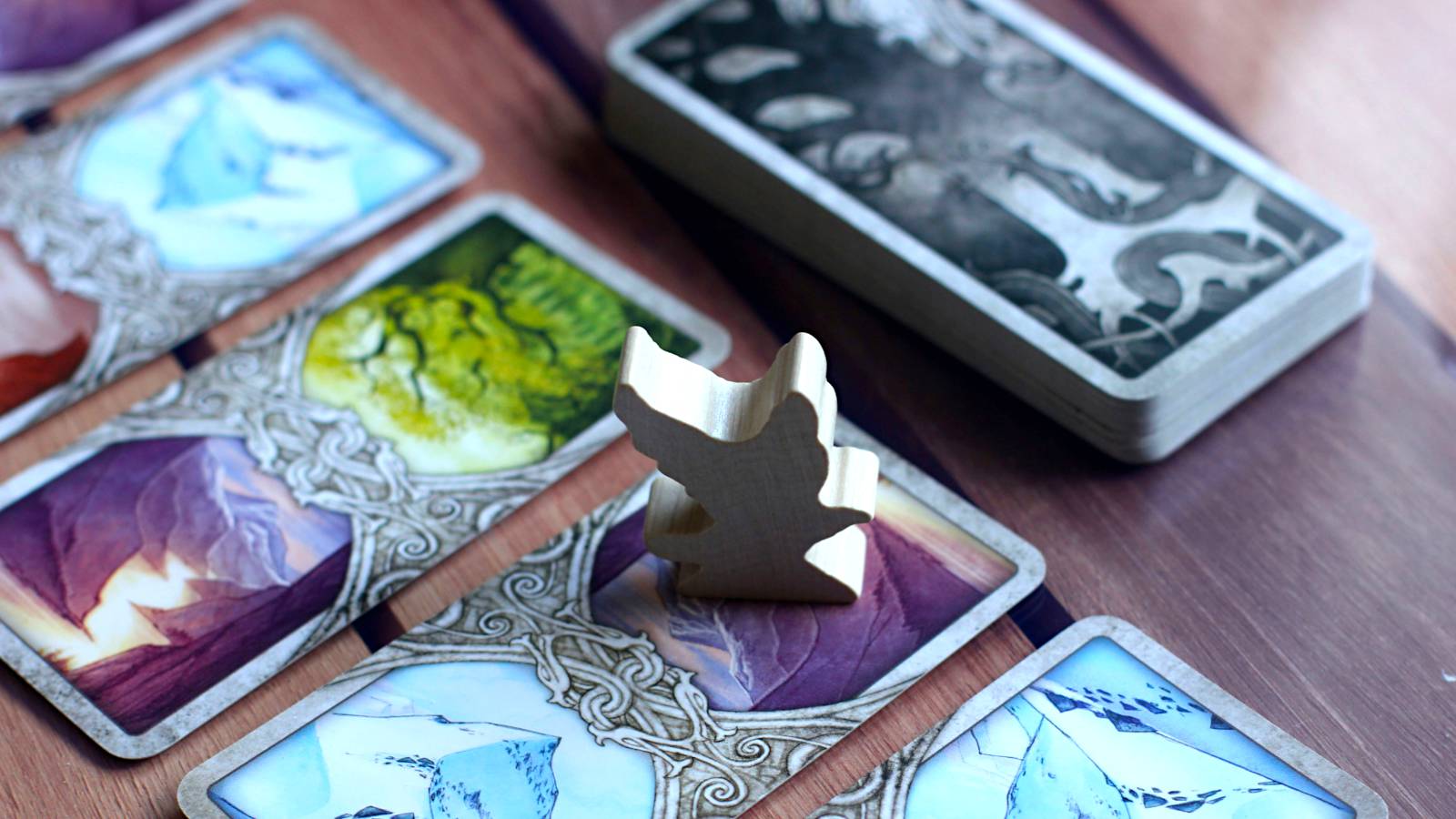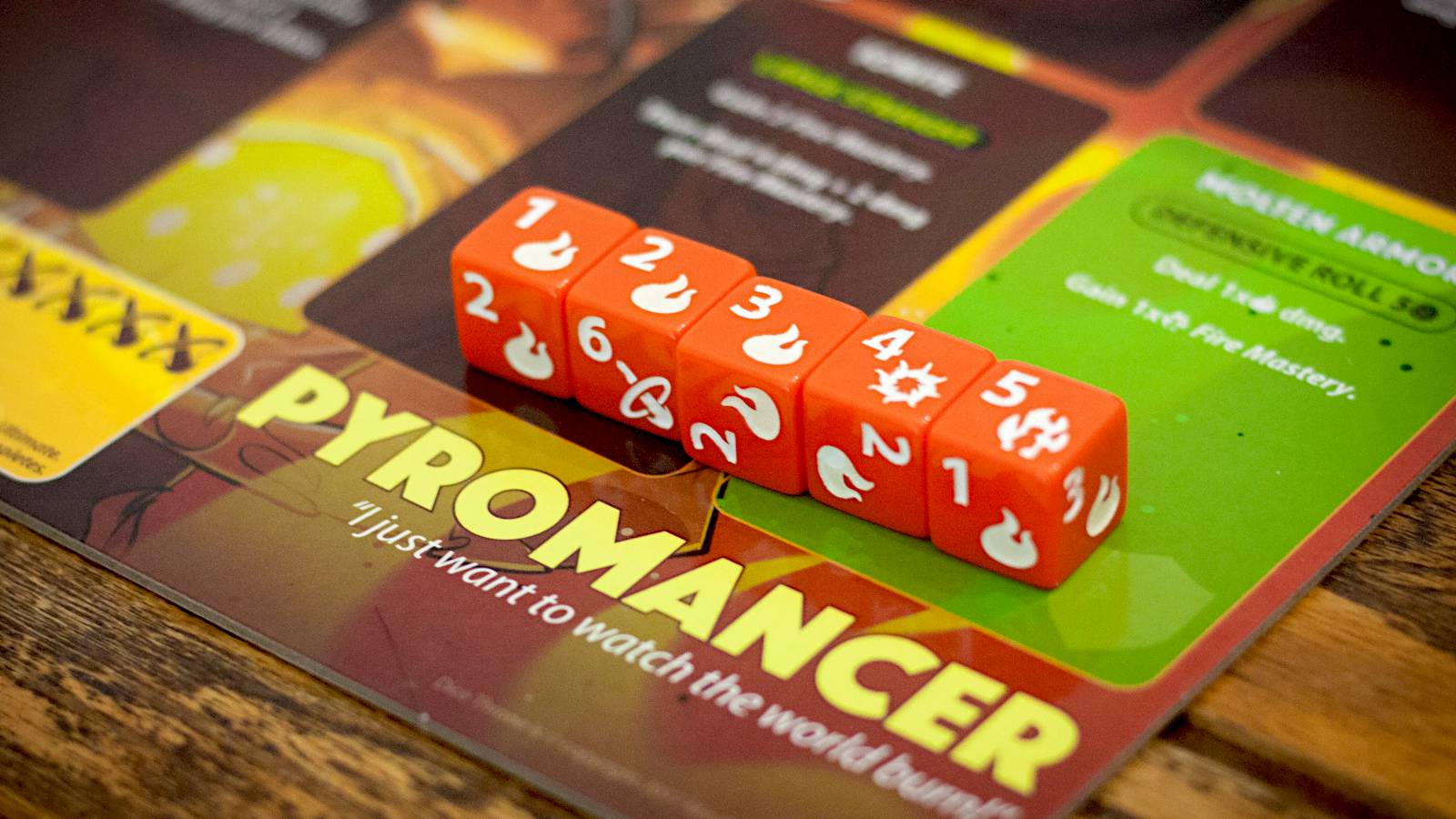You wouldn't know it if you met me today, but I was once the world's biggest sore loser. I wasn't necessarily an angry loser, mind you. But I had a deeply competitive spirit and winning was everything. If I lost, I was insufferable—and it was sheer grace that my friends continued to play games with me.
Are you a sore loser? You might be one without realizing it. And if you are a sore loser, then you have to decide whether you want to keep being that way or stop. (I think the right answer here is obvious. Anyone who regularly plays games with other people owes it to them to not be a sore loser.)
Here's how you can know if you're a sore loser and, if you are, how to start losing gracefully. This whole article is taken from lessons learned in my own (successful) pursuit of overcoming this negative gaming attitude.
You Might Be a Sore Loser If...
You Shut Down Emotionally
We all know at least one person like this—and that person might be you. Whether you're playing a complex strategy game like Ark Nova, a negotiation game like Bohnanza, or a social deduction game like The Resistance, the more you start losing, the quieter you get.
As victory slips from your grasp, you clam up. Teammates ask you for information or just want to chat, but you shrug them off. You feel like the victim of grave injustice as players stop trading with you or race ahead of you on the points track or destroy what you've built up. You realize maybe you can't win anymore, so the game feels pointless now. You shut down.
That was me as a sore loser—and I was the worst. The emotional shutdown may not be as obnoxious or demeaning as other types of sore loser behavior, but it's still unhealthy. It depresses the mood and makes others uncomfortable.
You Develop a Sour Attitude
It's one thing to shut down internally; it's another thing to direct that negative energy outwards to other people. Sulking on your own might bring down the mood, but at least you're keeping it to yourself. Once you start manifesting sour behaviors, though, you're crossing the line.
You whine about the game you just played. Your words start dripping with passive aggression. You snap at people when they talk to you. You're in a bad mood and you want others to know it, so you take it out on them. It spoils your outlook and you're unable to take the loss like a champ.
You Discredit the Winner
When losing hurts, we try to lessen the pain in various ways—and one of the most common ways is to discredit the winner. You feel bad, so your first reaction is to bring others down to make yourself feel better. It's the chief behavior of sore losers around the world.
You poke holes in their play, finding any and all reasons to minimize their victory. You try to spin the narrative and frame the results in a different light, one that makes them seem worse while making you appear better. After especially embarrassing losses, I've even heard nonsense like "You didn't win, rather I lost" and "You aren't good, I just played poorly."
The big thing here is that you think you're better than others. Losing threatens that view of yourself, so you avoid acknowledging that someone could be better than you, that maybe you aren't as good as you thought.
You Play the Blame Game
When you play cooperative games, you're never the reason why you lost. It's always someone else's fault. You're quick to shirk responsibility and dump it onto someone else because it makes you feel better. You played your best and everyone else dragged you down. You could never be dead weight. (Yet when your team wins, it's always because you led the victory. Hmm...)
But this extends to competitive games, too. You never get lucky with your card draws while everyone else gets exactly what they want. You played the "right" way but the winner cheesed their way to victory. You were in the lead but everyone else teamed up against you. Unfair, unfair, unfair!
You Give Up and Rage Quit
Someone just obliterated your base, stole your precious artifact, or ruined the grand strategy you've been building up. Now you're in a terrible position and have no chance of winning—so you give up. You get pissy, you stop caring, and you want to end things ASAP.
Maybe you walk away from the game. Or maybe you stay but make half-hearted decisions, clearly uninterested in what's going on. Or maybe you drop all pretense of playing the game as intended and launch a vendetta against whomever it was that ruined you. If it's really bad, you might even flip the table and storm out of the house.
For many, this "rage quit" is the worst form of sore losership. Some might even consider it unforgivable and they'll never play with you again. It's a temper tantrum, one that doesn't just ruin the mood/experience but invalidates the entire game, making a waste of all that time you just spent playing it.
The Reason Why You're a Sore Loser
If you want to stop being a sore loser, you have to first identify why you're a sore loser. Do this by asking yourself, "What's at stake when I play games?"
Losing is only a big deal when you have something to gain or protect by winning. If there's nothing at stake, then losing doesn't actually matter. If you have nothing to lose, then there's nothing to get upset over. But if there is something at stake, then the loss does matter. That's when it hurts.
To figure out what's at stake, you need to be real honest with yourself. Brutally honest. A lot of introspection and self-reflection. Unless you're willing to dig deep and face some ugly truths about yourself, you'll always be a sore loser.
Sometimes the stakes are small. In a campaign game like Adventure Tactics, victory earns you better rewards. In a legacy game like Pandemic Legacy, victory takes you on a different path altogether. In a solo game like Grove, you might be aiming to beat your personal record or doing a 10-play challenge and trying to win every single time. (It's one reason why solo games are so great.)
Sometimes the stakes are bigger. You might be part of a competitive group that plays for money, with everyone pooling together cash and divvying it up based on first place, second place, etc. Or maybe you're playing for a trophy. Or maybe you're participating in a regional tournament. Losing sucks when there's a tangible and valuable prize on the line.
But those are pretty surface-level stakes. Honestly, you probably don't even care about those things. Truth is, for most of us, the stakes go deeper. Pride and insecurity are big ones for many gamers, and they manifest in all kinds of ways. If winning is so important to you that losing causes you distress, you can probably trace it back to pride or insecurity (two sides of the same coin).
Pride was the main one for me. I wanted to be seen as the best. I wanted to flaunt my strategic prowess over everyone else. I wanted to feel cunning and clever, to outplay even the smartest players, to flex my ingenuity and maintain my reputation as a gifted kid. That reputation was on the line every time I played, so I had to win—and whenever I lost, I didn't want to face the truth that maybe I wasn't as smart, skilled, or special as I thought myself to be.
On the flip side, you have insecurity. You feel lesser than those you're playing with. You suspect they're looking down on you. You don't want them to think you're wasting their time, taking up a spot that could go to someone else. You want to prove yourself, so you have to win. You think winning will elevate your status in the group, in their eyes, in how you view yourself.
Any time you're playing to prove something—whether to yourself or to others—you're risking emotional disaster. You're tying your self-worth to the results of the game. When you win, your pride is justified or your insecurity is eased; when you lose, your ego is crushed and your doubts flare.
The only way to stop being a sore loser is to divorce your sense of self-worth from victory or defeat. Find what's subconsciously at stake and you'll understand why you're a sore loser. If you temper your pride, overcome your insecurity, and develop confidence in yourself, you'll stop being a sore loser.
That's easier said than done, I know, and it might take years of personal development and possibly even therapy. But it's the only genuine long-term fix. You have to identify, battle, and conquer those inner demons. Until you do, they'll always be lurking and ready to rear their heads.
In the meantime, keep reading for some band-aid behavioral modifications you can try to mitigate your soreness when you lose.
Helpful Things to Try When Losing Stings
Smile and Say "GG"
You might think you smile because you're happy, but did you know it also goes the other way? You're happier when you smile! To some degree, anyway.
According to the facial feedback hypothesis, your facial expression directly influences your emotions—and a 2019 study by researchers from Texas A&M University and University of Tennessee confirmed that "the available evidence supports the facial feedback hypothesis' central claim that facial feedback influences emotional experience."
In short, while it's no cure for depression, and while there are limits to its effectiveness, forcing a smile can actually make you feel better. The physical act can affect your emotional state. Similarly, frowning and pouting and sulking and glowering can sink you deeper into a negative headspace.
I've personally found that smiling does make it easier to shrug off a big loss. Throwing in a quick "GG" (meaning "good game") to the winner also helps to process the loss in a more positive way. Plus, it's good sportsmanship.
Find Reasons to Praise Others
Suppose you just lost a cooperative session. Why play the blame game when you can play the opposite? Instead of dwelling on what your teammates did wrong, think of all the things they did right—and make sure you voice it to them.
Voicing it is the important thing here. You aren't just trying to "think positive thoughts." You're going one step further and sharing that positivity with someone else. You're using your words to build someone else up while stealing the focus away from mistakes and failures. And you'd be surprised by how much better you'll feel doing this.
It's also something you can do with competitive games. Did someone best you with a crazy strategy? Talk about it and praise them for it! Did someone pull off an incredible combo that churned out points? Celebrate it!
Burn Off Your Negative Energy
I get it. Sometimes you just have a session so frustrating or unfair that it stirs up your emotions and you can't make it go away just by thinking positive thoughts. You feel bad and can't snap out of it. What do you do then?
According to one study published in 2023, physical activity can help regulate emotions. The study found that "the effects of exercise on mental health have been shown to be beneficial" and that there's "adequate evidence to suggest that physical exercise improves depressive and anxiety symptoms." It's far from the only study to show that exercise boosts mood and mental health.
You know how some people scream into a pillow when they're mad? You can do something similar by, say, cranking out 20 pushups. Or doing jumping jacks for a full minute. Or running up and down a flight of stairs. Physical activity produces endorphins and relieves stress, so why not?
While I don't like "blowing off steam" as the main way to cope with negative energy, it's useful once in a while for the occasional big loss.
Remind Yourself That Somebody Has to Lose
In any competitive game, somebody has to lose. There's no getting around that. Which means you can think of it like this: the fact that you lost means everyone else didn't—so, in a sense, you took on the pain of losing so that nobody else had to, plus one person got to enjoy a win.
Consider it a sacrificial act of service. A bit cheesy? Maybe. But it can sometimes help to reframe the situation like this. (Of course, it's a lot easier to do when your opponent is being a gracious winner!)
Good Luck! You Got This
At the end of the day, nobody likes a sore loser. Yeah, losing sucks, I know. But it doesn't have to be such a negative thing. Find out what's personally at stake for you when you play games and try changing your mindset with some of the tips above. If it's really difficult, you might need some counseling, and that's okay.
Every step forward is progress. Once you're able to start moving past sore losership, your gaming experiences will be that much more enjoyable—for yourself and for everyone else around you. Godspeed!










